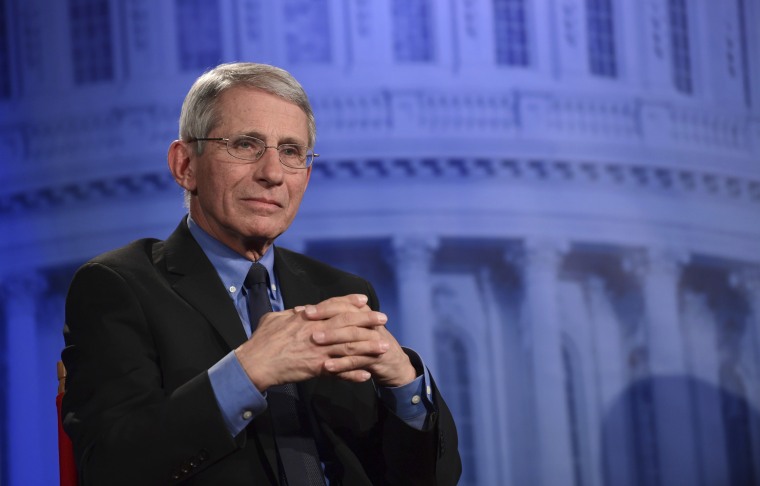At yesterday's White House meeting on the response to the coronavirus outbreak, Donald Trump seemed almost desperate to say a vaccine was right around the corner -- as if saying so would make it true. "I've heard very quick numbers, that of months," the president said.
Dr. Anthony Fauci, the head of the National Institute of Allergy and Infectious Diseases, tried to explain -- carefully -- the difference between making, testing, and deploying a vaccine. "That is going to be, at the earliest, a year to a year and a half, no matter how fast you go," Fauci said.
It was against this backdrop that Politico reported on the high-profile NIH official, who appears to be "the one person everyone in Washington trusts right now."
[A]t 79, the director of the National Institute of Allergy and Infectious Diseases is in the thick of one of the biggest battles of 35 years in the role: The race to contain coronavirus when the nation is deeply polarized and misinformation can spread with one tweet -- sometimes, from the president himself.
When Fauci, who's helped navigate a dozen outbreaks and six presidents, sat down with Politico on Friday, he said, "You should never destroy your own credibility. And you don't want to go to war with a president. But you got to walk the fine balance of making sure you continue to tell the truth."
On the surface, it's reassuring that Fauci -- and presumably, officials like him -- are principally concerned about telling the truth and maintaining their credibility. Those are the kinds of motivations that lead to valid public warnings that Americans can trust.
But it's the other part of the quote that stood out for me: Fauci doesn't want to "go to war" with Donald Trump. In a sensible governing dynamic, this wouldn't be much of a question: leading NIH officials and their colleagues would simply do their jobs and share the facts with those willing to listen.
And yet, in 2020, as Fauci occasionally finds it necessary to fact-check the president in public, he has to be mindful of the fact that Trump will disapprove of the truth -- and given the severity of the public-health threat, these aren't the kind of conditions that ought to exist.
As for the road ahead, Fauci added in the same interview, in reference to the coronavirus outbreak, "I don't think that we are going to get out of this completely unscathed. I think that this is going to be one of those things we look back on and say boy, that was bad."

